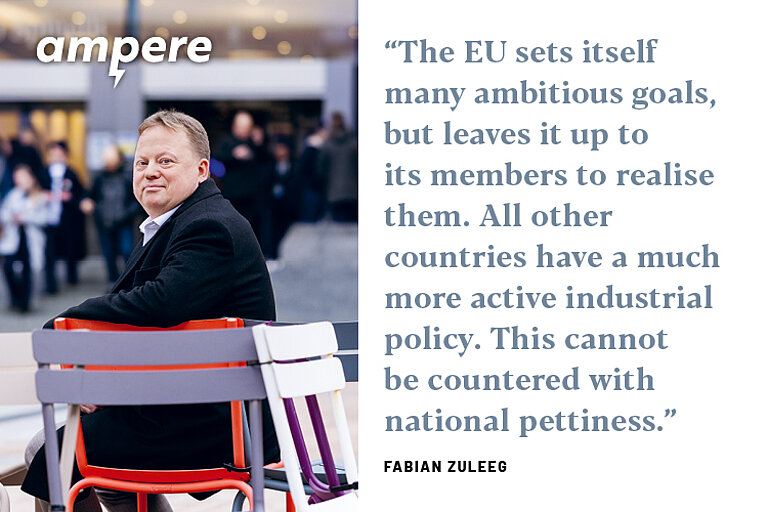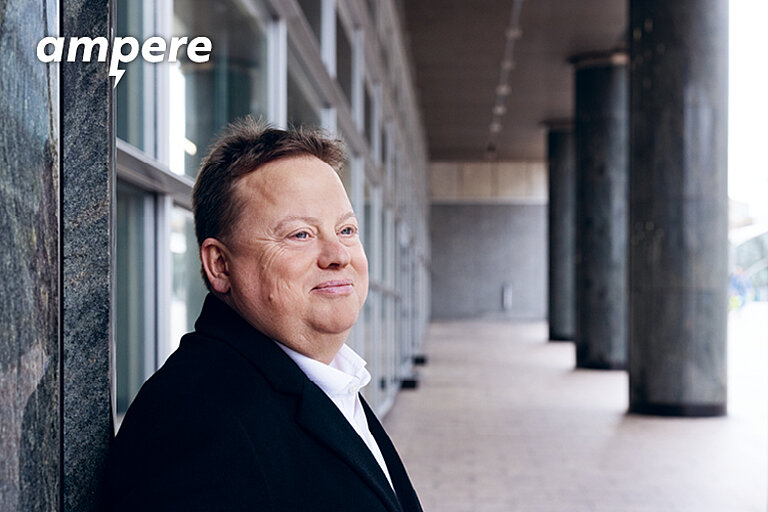Zuleeg has headed the EPC for ten years and is one of the best-known figures in the Brussels political arena. “I am not an outspoken optimist,” he explains, “but it is important that we are honest.” What Europe has done so far is no longer nearly enough in times of the permacrisis. The EU needs a jolt.
What should be reformed in the next legislative period? “The EU must move away from the unanimity rule on many issues.” In order to prevent blockades by individual states in the future, he proposes the “majority minus one” model, in which a decision is deemed to have been made if only one member votes against it. As an alternative, Zuleeg can imagine a “coalition of the willing”, which is where a group of countries joins forces and implements individual projects with a kind of parallel budget. According to the Treaty of Lisbon, this is possible in principle.
Zuleeg is also calling for a rethink in industrial policy. “Acting purely on a national level here is no longer up to date.” The EPC boss points out a fundamental problem: The EU sets itself many ambitious goals, but leaves it up to its members to realise them. Take climate protection, for example. In March 2023, the EU published the “Net-Zero Industry Act”, which stipulates that at least 40 per cent of the climate-neutral technologies required per year will be produced in Europe from 2030. However, it is up to national governments to decide where and how battery factories, hydrogen electrolysers or wind farms are built. There is therefore a risk that too little and only selective investment will be made in green technology. “All other countries have a much more active industrial policy – like the USA with its Inflation Reduction Act,” explains Zuleeg. This cannot be countered with national pettiness.





![[Translate to Englisch:] [Translate to Englisch:]](/fileadmin/_processed_/e/d/csm_ampere_1_2024_Chefsache_Web_750x500_01_bfa9bd6792.jpg)
![[Translate to Englisch:] [Translate to Englisch:]](/fileadmin/_processed_/5/7/csm_ampere_1_2024_Zwiegespraech_Web_750x500_Teaser_47fd1761f1.jpg)
